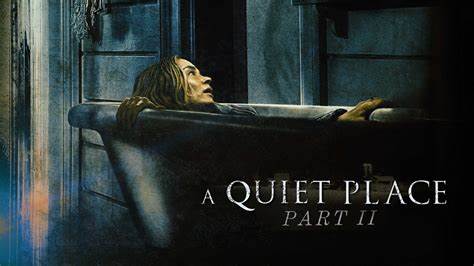
1. Given that your 40 days of fasting coincided with Ramadan and Lent in April 2025, how did this specific confluence of traditions influence your spiritual experience and the nature of the recitations received?
Although I fasted many times for Ramadan and Lent, this particular fast wasn’t influenced by either. Perchance, I say it occurred during the confluence of the two traditions. Maybe it was a most auspicious period and I was moved by Spirit to so embark.
2. You describe the voice that dictated the poems as a guide named Carlos. Could you elaborate on how you cultivated the receptivity to receive these messages, and what practices, beyond fasting, might have prepared you for such an experience?
Mediumship in the true sense requires both parties – spirit and vessel to be in sync vibrationally. One has to raise one’s frequency through intention, detachment, meditation, and self-abnegation (of which fasting is included). Likewise, in so many cases, spirits adjust their frequency to enable this marriage. Notably, most spirits are unable to do this, in the same, this interfacing of spirit and matter is alien to most people. Regarding my muse, I received persistent flashes of his features during meditation and faithful prayer. It’s only when I surrendered, meaning, I stopped using the mind (my thoughts stopped), and became more receptive and passive, that I was able to hear his words. That said, testing the authenticity of the source is important. I cannot overemphasize the importance of discernment. On testing the spirit, that’s another question all together.
3. The prologue mentions Allan Kardec’s concept of inspirational mediumship and Carl Jung’s dialogues with Philemon. How did your existing knowledge of these figures and their theories shape your interpretation of your own “daemon-inspired” experiences?
I studied Brazilian spiritism that really revolves around Alan Kardec and, of course, as a psychotherapist, I think Jung is integral to any study of the unconscious realms. My studies helped me to understand and integrate my encounters with my inner world. We all have an immense capacity to heal and expand our intuitive abilities through these experiences. Unfortunately, the path toward this reality is hamstrung by our own doing – our doubts, fears, guilt, and our overall disbelief in the innate powers of Self.
4. You state that your “only labor was assigning the most fitting title to each body of work”. Was there a particular process or intuition you followed to capture the essence of each transmitted poem in its title?
Connecting to spirit becomes seamless after a while; not unlike switching lights (on and off) at will. By pure intention I merged with the different stream of consciousness that was Carlos. Naming each poem was an offshoot of this connection with some deliberation, though. And there’s the difference. I needed to read, sometimes a couple of times what was transmitted and then assign the most fitting title.
5. The book touches on the idea that “nature is presented as the inimitable laboratory of God”. How do you see the natural world functioning as a teacher or guide in one’s spiritual journey, especially during intense periods of introspection like fasting?Fasting clears the mental debris, the fog. Truth is played out minute by minute in everyone’s life. There are these Eureka Moments – realities of timeless teachings, timeless counsel that we oftentimes ignore at our own peril. Moreover, we learn that in silence the inner teacher is always there, if we only listen. Nature, if we study Her is the most immense of teachers. I question when we boast of saving Her. Our generation and the many generations thereafter will pass away and She will be never go away; always there as the consummate teacher. The enduring benefits of the sun and the moon, the truths of Her seasons in respect to impermanence and reincarnation, the curative properties of Her plants and waters. We can go on and on. Surely, there’s nothing like unto Her.
6. “Many of the poems center on end-of-life concerns and identify our attachments as the cause of our suffering”. How did engaging with these themes during your fast impact your personal perspective on mortality and detachment?
Death is the greatest, most telling and instructive of life’s many initiations. Its impact endures. Its reality terrifies us, a terror that has harried our oldest ancestors. Many of our theological dogmas were construed to assuage, even to counter this inevitability. Eschatology or afterlife musings purportedly help us navigate the unknown. Some of these are delusional, with no basis in natural law. The reality is: we must journey home and as such, we should be prepared on multiple levels for this final journey. This explains the death meditation in Buddhism. It is hardly morbid, rather it instructs us in the invaluable practice of detachment and impermanence. Once grasped, our transition, be it sudden or protracted, is embraced as nature’s gift toward spiritual development.
7. You mention that “unresolved conflicts long buried” surfaced during this period, and the dream state became a principal mode for reconciliation. Can you discuss the role of dreams in your spiritual and psychological process during the 40 days?
The dream state, long an enigma for many, can be a veritably congruent and coherent inner experience, although it appears abstruse and nebulous. Dreams in themselves are real and do make sense to us if we understand the laws at play. It is only when we are in waking consciousness that the experience appears disjointed and full of unfathomable symbology. That’s because we are using a physical or mental lens to understand spiritual experiences that function according to different laws. For example, in dreams we don’t speak as we are accustomed, rather messages are conveyed telepathically. Moreover, in dreams the spirit is unencumbered by the laws of gravity; we fly and move about, even create at will. A different reality, no doubt, but it’s still inextricably connected to the waking state, hence we have prophetic and cathartic dreams that facilitate healing and incredulous insights. The dream state is very real. And yes, fasting awakens ever so starkly the reality of this phenomenon.
8. The first week’s theme is “Forgiveness,” and you recount a bullying incident and a dismissal of a love interest resurfacing. How challenging was it to confront these past events, and what did you learn about the nature of forgiveness, both for others and for oneself?
Forgiveness liberates us from pain, pain in the form of hatred, resentment, guilt. These are energies that work against the fruition of spirit; they are barriers to experiencing true freedom. It was interesting that these incidents surfaced during my fast. They were buried; I locked the pain of these experiences and supposedly tossed away the key. But every stone will be unturned at some juncture in our life and we will have to address it. We discussed death earlier. It is during the dying period that our sight is sharpest and buried experiences surface, wreaking havoc on the psycho-emotional state of the dying person. We don’t want this, hence the importance of addressing and reconciling inner conflicts now. Fasting provides us with such opportunities.
9. In “Idolatry,” you explore the concept of clinging to “multiple hosts” or “idols”. What forms of modern “material enslavement” or attachment do you believe are most prevalent and hinder spiritual growth?
We create idols all the time, meaning, we give them our attention, our energy, our undivided concern – they preoccupy our minds. We are ever grasping at desires – never satisfied we are. This creates an ever more oscillating state of joy and sadness, and anger and happiness. We are attached to these idols; we feed off them. There are so many forms of materialism. If only we give a little time, just a little time for gratitude, for the lessons of life, for nature, for dharma, and for our God
10. The poem “Damned” speaks to feelings of treachery and deception. Was confronting these personal failings a particularly difficult part of the fasting experience, and how did it contribute to your understanding of accountability?
“Damned” speaks to everyone. It spoke to me strongly. There are things I sorely regret in my life; people I have hurt, things I have said and done. But we all must look in the mirror. We are too involved, preoccupied with the lives of others, passing judgement, criticizing, when we should look inward. What are we afraid of? There is a beautiful axiom, one of many that Jesus instructed. It says: “And why beholdest thou the mote that is in thy brother’s eye, but considerest not the beam that is in thine own eye?”
11. “Little Do We Know” discusses the disappointment when outcomes don’t align with our will, leading to wavering faith. How do you reconcile human effort and desire with the concept of surrender to a higher will?
We are blessed with will. Of the human will philosophers have debated. That effort, the insatiable drive to create is God-given. The libido is that creative spark that speaks to the primal, god energy in us. Social progress on all levels, and technological advancements are attributable to the human will. Yes, we are creators but we are also destroyers. We can create without the destructive seed of greed and avarice; the destructive seed of grasping and the desire to control. When we create, we create for the betterment of humanity. We must also recognize the limits to endeavors, that we don’t breach the boundaries of right conduct. When we work against the currents – some call it the Tao or natural rhythm of life – we bring untold hardships to ourselves and others. When we flow in the moment we create our best works. The human will is most healthily creative and never destructive when it flows fluidly.
12. In Week 2, the theme of “Service” emerges, inspired by your reflections on your father’s unique spiritual path through lifelong service to family. How has this understanding of service impacted your own life and spiritual practice since completing the fast?
Service is an ongoing practice. We must strive to be of service with our body, speech, and mind. I have realized that service is more than a physical act; of course that’s important, but equally so are our thoughts of compassion, love, and equanimity. Only then are we living embodiments of service. And I like to think of my father and my mother as representational of the ultimate service.
13. “When Ye Fast” highlights figures like Gandhi and King, suggesting fasting as a “Herculean undertaking” for self-abnegation and the emergence of the “subtle self”. How can individuals, in their daily lives, embrace elements of “self-abnegation” without necessarily undertaking a full fast?
Fasting is not only denying the body food for extended periods of time and performing other forms of austerity. There must be mindfulness, an awareness that guards against particular behaviors and thoughts. One should refrain from idle chatter that expends vital energy. Guarding against gossiping, and listening and viewing any subject matter that causes anger, perverse desires, and anxiety, are important. Equally so is the practice of sitting in quietude, that of embracing silence.
In other words, eradicating habitual thoughts and behaviors that are counterproductive should be the aim.
14. The poem “Shekinah” describes a comforting divine presence during times of hardship and fear. Can you speak more about the experience of feeling this presence and how it offered solace amidst various challenges?This phenomenon is not only experienced by storied prophets and saints. It is experienced by the blessed among us and throughout history. In times of danger many speak of an ineffable tranquility and peace, a kind of reassurance that no danger will befall them. We can attribute this to their incredible faith in God – and mind you – this faith is not mere belief, it’s an energy that exerts its own presence and connection to Source itself. Haven’t we been told that faith, a mustard seed in size, can move mountains? Think about it.
15. In Week 3, you address the “dark night of the soul” and chanting “I am nothing” to annihilate the ego. What advice would you offer to readers who are grappling with their own ego and seeking genuine humility?Having a healthy sense of identity is admirable but having a skewed sense of self brings great loss. History tells of those who once stood tall. Stories of today, even our own story, all serve as reminders that we don’t or cannot control life and our surroundings. All of life is transient, impermanent, and we all wrestle with life’s vagaries and vicissitudes. And ultimately, we succumb, feeble and weak, or we are snatched away in our prime; in a blink of an eye. We are nothing in that sense. There’s an Arabic recitation: La hawla wala quwwata illa billah, meaning, “All Strength and Power comes from God.” That’s why dharma is so important, that’s why gratitude and humility are so important. These are enduring and timeless counsel that begs for attention.
16. The foreword mentions that “40 Days of Fasting” is “not a scholarly book-it is a prayerful one. It does not seek to impress; it seeks to awaken”. What do you hope is the most significant “awakening” your readers will experience after engaging with these recitations?
Great question. As you know this work was an outpouring of messages and admonitions. Never did I have the intention to write, and poetry of all genres. When the last poem was transmitted I reflected on the significance of the experience. I can only hope that its counsel, insights, and revelations become reminders for readers; that they hold this material as a source of inspiration and sustenance throughout their days.




